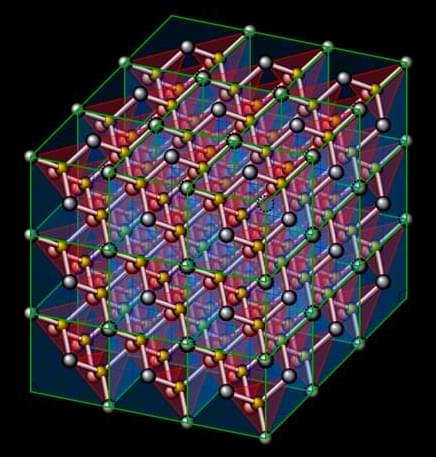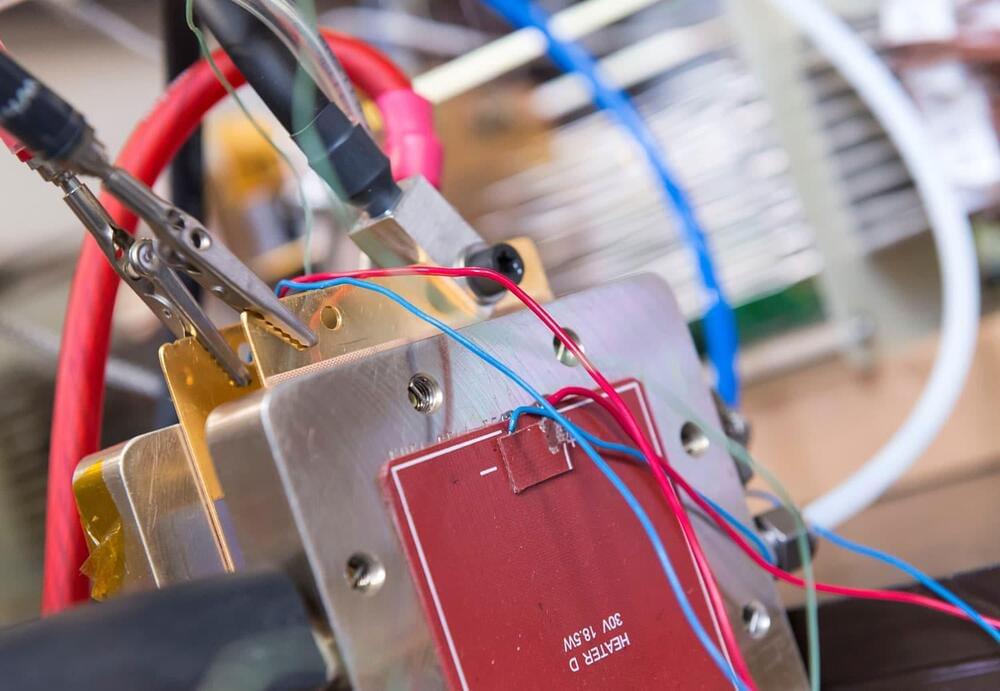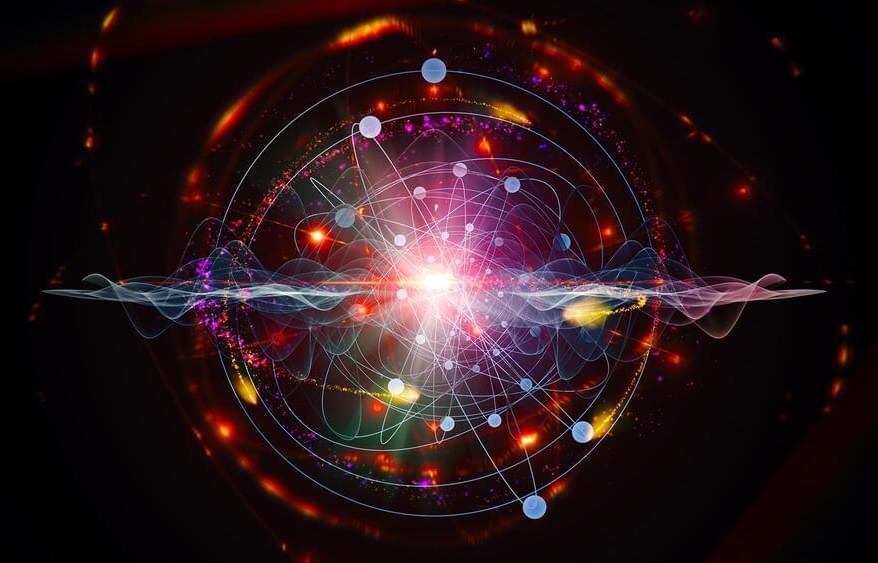Engineers have developed a way to mass-produce diamond wafers that could store the equivalent of a billion Blu-ray disks on a single device.


Elon talks about x-risks and making us a multi-planetary species, amongst other things.
What’s on Elon Musk’s mind? In this exclusive conversation with head of TED Chris Anderson, Musk details how the radical new innovations he’s working on — Tesla’s intelligent humanoid robot Optimus, SpaceX’s otherworldly Starship and Neuralink’s brain-machine interfaces, among others — could help maximize the lifespan of humanity and create a world where goods and services are abundant and accessible for all. It’s a compelling vision of a future worth getting excited about. (Recorded at the Tesla Texas Gigafactory on April 6, 2022)
Just over a week after this interview was filmed, Elon Musk joined TED2022 for another (live) conversation, where he discussed his bid to purchase Twitter, the biggest regret of his career, how his brain works and more. Watch that conversation here: https://youtu.be/cdZZpaB2kDM
0:14 A future that’s worth getting excited about.
2:44 The sustainable energy economy, batteries and 300 terawatt hours of installed capacity.
7:06 “Humanity will solve sustainable energy.“
8:47 Artificial intelligence and Tesla’s progress on full self-driving cars.
19:46 Tesla’s Optimus humanoid robot.
21:46 “People have no idea, this is going to be bigger than the car.“
23:14 Avoiding an AI dystopia.
26:39 The age of abundance.
28:20 Neuralink and brain-machine interfaces.
36:55 SpaceX’s Starship and the mission to build a city on Mars.
46:54 “It’s the people of Mars’ city.“
50:14 What else can Starship do and help explore?
53:18 Possible synergies between Tesla, SpaceX, The Boring Company and Neuralink.
54:44 Intercontinental travel via Starship.
58:41 Being a billionaire.
1:02:31 Philanthropy as love of humanity.
1:03:39 Population collapse and birth rates as a threat to future of human civilization.
1:04:13 Elon’s drive.
1:06:06 “I think if you want the future to be good, you must make it so.”
If you love watching TED Talks like this one, become a TED Member to support our mission of spreading ideas: http://ted.com/membership.

Last week, NASA’s Perseverance Rover captured a gorgeous view of Phobos eclipsing the Sun, from the surface of Mars. From the point of view of any Martian microbes lurking out there, the eclipse may have seemed more ominous (yeah ok, there might not be living organisms up there, let alone ones sentient enough to grasp the concept of an eclipse) as the moon is destined by physics to one day slam into the red planet.
Phobos – the closest of Mars’ two moons – is set to get ever closer to the planet, before its final descent, while Deimos will drift ever outwards until it leaves Mars’ orbit.

Alex Pourbaix, the CEO of Cenovus, Canada’s second-largest oil and gas company, spoke up in a call with industry analysts where he criticized the plan and the money being offered to the industry. He called for a much large commitment from governments if the industry were to build large-scale CCUS. Pourbaix suggested that there were examples from other countries where the industry was being given up to 70% of the capital costs on new CCUS projects and was receiving additional money to offset operating costs.
While Pourbaix was complaining about the lack of money to build CCUS projects, he also announced to analysts that Cenovus had earned a seven-fold jump in its quarterly profits, and was tripling dividend payments to shareholders. This wasn’t mentioned in Jones’ article but did appear in the same edition of the paper, two pages later, tucked away well below the fold. It reported Cenovus had announced per-share dividends rising from $0.14 US to $0.42, with earnings exceeding analyst estimates at $0.79 per share. In the same report, Cenovus announced production output of synthetic crude from oil sands operations growing from over 769 to almost 800,000 barrels a day. There was no mention of GHG emissions contributions. And when I went to look at the company’s annual and quarterly reports, there was no reporting on GHG emissions or even intensity per barrel or per cubic metre related to production although there was a pledge to sustainability and best ESG practices. A 2020 Bloomsberg report states that GHG emissions at Cenovus continue to rise.
Cenovus is one of the founding members of the Clean Resource Innovation Network (CRIN). Its mission is to keep Canadian oil and natural gas companies competitive in world markets. Other members are fossil fuel companies, think tanks, academics, and government departments. CRIN acknowledges a low-carbon future but seems to lack a roadmap to get there. As I perused the website there was little information on strategies for carbon emission reductions. There was content related to intensity per unit of production as well as discussion about cleaner fuel standards. But I found nothing about CCUS.


Award-winning author and futurist Amy Webb examines the world of synthetic biology in her book “The Genesis Machine.” She sits down with Hari Sreenivasan to discuss the potential and the concerns of redesigning our lives.
Originally aired on April 28, 2022.
For more from Amanpour and Company, including full episodes, click here: https://to.pbs.org/2NBFpjf.
Like Amanpour and Company on Facebook: https://bit.ly/2HNx3EF

A radio message will be sent to an alien solar system this year. What should it say?And what are the pros and cons to sending interstellar messages to aliens that may or may not exist.
See my blog on BigThink.com.
Link to go directly to the article.
This blog was posted on Big Think.

In the pre-industrial age, people only needed to measure years and months to a fair amount of accuracy. The position of the sun in the sky was good enough to break up the day. Timing at the level of fractions of a second was simply not needed.
Eventually, modern industry arose. Fast-moving machines came to dominate human activity, and clocks required hands that could measure seconds. In the current era of digital technology, the timing of electronic circuitry means that millionths or billionths of a second actually matter. None of the high-tech stuff we need, from our phones to our cars, can be controlled or manipulated if we cannot keep close track of it. To make technology work, we need clocks that are faster than the timing of the machines we need to control. For today’s technology, that means we must be able to measure seconds, milliseconds, or even nanoseconds with astonishing accuracy.
Every timekeeping device works via a version of a pendulum. Something must swing back and forth to beat out a basic unit of time. Mechanical clocks used gears and springs. But metal changes shape as it heats or cools, and friction wears down mechanical parts. All of this limits the accuracy of these timekeeping machines. As the speed of human culture climbed higher, it demanded a kind of hyper-fast pendulum that would never wear down.